
Koh Samui: Thailand's Island Paradise
Koh Samui, a gem in the Gulf of Thailand, is a tropical paradise that caters to every type of traveler. Known for its palm-fringed beaches, coconut groves, and dense, mountainous rainforest, this island offers a serene escape from the hustle and bustle of everyday life. The crystal-clear waters and vibrant coral reefs make it a haven for snorkeling and diving enthusiasts. The island's cultural richness is equally captivating. Wat Phra Yai, also known as the Big Buddha Temple, stands as a majestic symbol of Koh Samui's spiritual heritage. The Fisherman's Village in Bophut adds a touch of rustic charm, with its wooden Chinese shop-houses and French-style boutique hotels. Every Friday night, the village transforms into a bustling night market, offering an array of local crafts and street food. For those seeking luxury, Koh Samui is home to some of Thailand's most exquisite resorts and spas, providing the perfect setting for relaxation and rejuvenation. The island's nightlife is equally vibrant, with Chaweng Beach being the epicenter of bars, clubs, and entertainment. Whether you're looking to unwind on a secluded beach, explore rich cultural sites, or indulge in world-class dining, Koh Samui offers an unforgettable experience.
Local tips in Koh Samui
- Visit during the dry season from December to April for the best weather.
- Rent a scooter to explore the island at your own pace.
- Don't miss the Friday night market at Fisherman's Village in Bophut.
- Try the local seafood; it's fresh and delicious.
- Respect local customs, especially when visiting temples. Dress modestly and remove shoes before entering.
Neighbourhoods in Koh Samui
Koh Samui: Thailand's Island Paradise
Koh Samui, a gem in the Gulf of Thailand, is a tropical paradise that caters to every type of traveler. Known for its palm-fringed beaches, coconut groves, and dense, mountainous rainforest, this island offers a serene escape from the hustle and bustle of everyday life. The crystal-clear waters and vibrant coral reefs make it a haven for snorkeling and diving enthusiasts. The island's cultural richness is equally captivating. Wat Phra Yai, also known as the Big Buddha Temple, stands as a majestic symbol of Koh Samui's spiritual heritage. The Fisherman's Village in Bophut adds a touch of rustic charm, with its wooden Chinese shop-houses and French-style boutique hotels. Every Friday night, the village transforms into a bustling night market, offering an array of local crafts and street food. For those seeking luxury, Koh Samui is home to some of Thailand's most exquisite resorts and spas, providing the perfect setting for relaxation and rejuvenation. The island's nightlife is equally vibrant, with Chaweng Beach being the epicenter of bars, clubs, and entertainment. Whether you're looking to unwind on a secluded beach, explore rich cultural sites, or indulge in world-class dining, Koh Samui offers an unforgettable experience.
When is the best time to go to Koh Samui?
Iconic landmarks you can’t miss
Big Buddha Temple (Wat Phra Yai)
Discover the awe-inspiring Big Buddha Temple in Koh Samui, a remarkable blend of spirituality and stunning views that captivates every traveler.
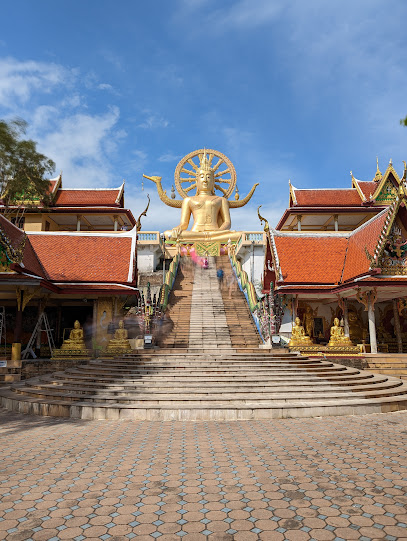
Grandfather and Grandmother Rocks (Hin Ta Hin Yai)
Explore the iconic Grandfather and Grandmother Rocks in Koh Samui, a natural wonder showcasing unique rock formations and stunning coastal views.
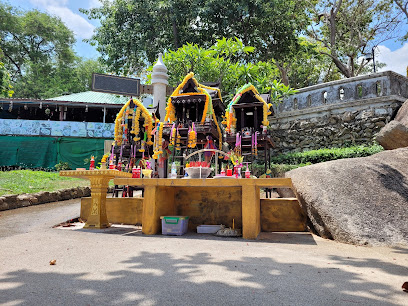
Wat Plai Laem
Explore the mesmerizing Wat Plai Laem, a stunning Buddhist temple in Ko Samui, featuring vibrant art and serene landscapes perfect for reflection.
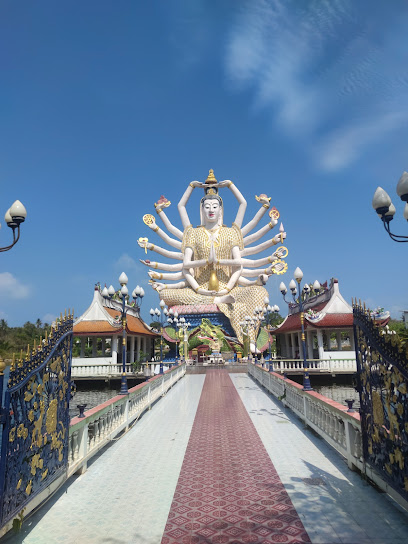
Samui Airport
Experience the tropical charm of Samui Airport, your gateway to the breathtaking beauty and vibrant culture of Koh Samui.
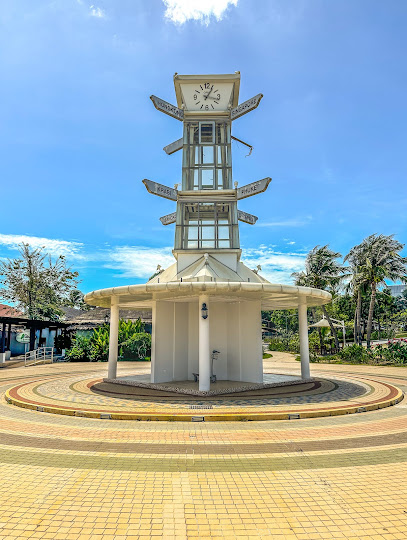
Tarnim Magic Garden
Explore the whimsical Tarnim Magic Garden in Ko Samui, a vibrant haven of art and nature blending creativity with tranquility for an unforgettable experience.

Ta Nim Magic Garden
Discover the whimsical beauty of Ta Nim Magic Garden in Ko Samui, a vibrant oasis filled with artistic sculptures and lush nature, perfect for all ages.
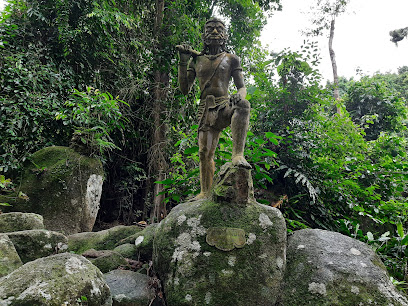
Lad Koh View Point
Experience the stunning vistas and unique rock formations at Lad Koh View Point, a top scenic spot in Ko Samui, Thailand.
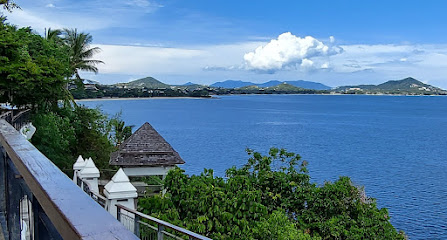
Ko Samui
Explore the breathtaking beaches, vibrant culture, and lush landscapes of Ko Samui, Thailand's tropical paradise for unforgettable adventures.

Fisherman's Village Night Market
Discover the charm of Fisherman's Village Night Market in Ko Samui, Thailand, where local culture, delicious food, and unique shopping await you.

The Green Mango
Discover the enchanting nightlife at The Green Mango in Ko Samui - where vibrant music meets a lively atmosphere for an unforgettable experience.
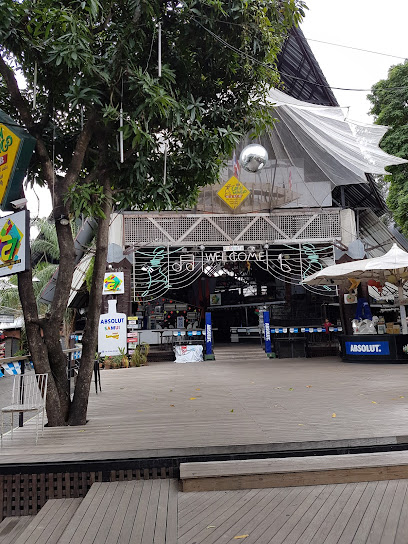
Samui Elephant Sanctuary Bophut
Discover the beauty of ethical tourism at Samui Elephant Sanctuary Bophut, where compassion meets conservation for rescued elephants.
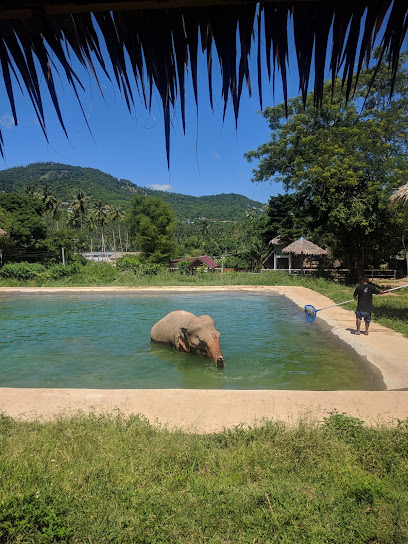
วัดราชธรรมาราม (วัดศิลางู)
Discover the enchanting beauty of Wat Plai Laem, a must-visit Buddhist temple in Ko Samui, Thailand, showcasing stunning architecture and serene surroundings.
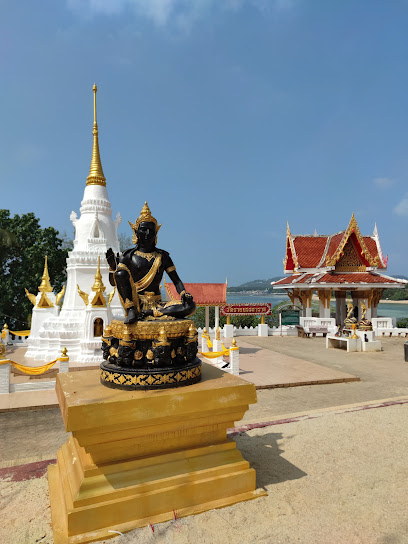
Lamai Viewpoint & Valentine Stone
Discover stunning vistas and a romantic ambiance at Lamai Viewpoint & Valentine Stone, a must-visit gem in Koh Samui, Thailand.
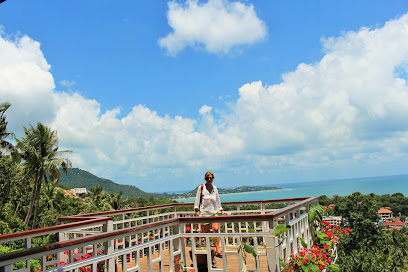
หน้าเมือง ซาฟารี ปาร์ค
Explore the vibrant wildlife and stunning landscapes of Ko Samui at this enchanting wildlife and safari park, a haven for nature lovers and adventure seekers.
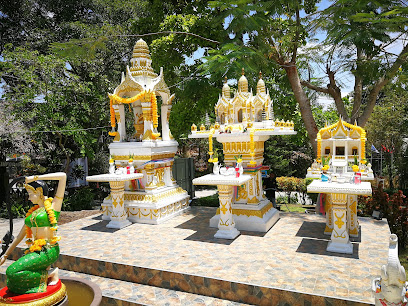
Wat Khao Hua Chuk Pagoda
Explore the tranquil beauty of Wat Khao Hua Chuk Pagoda in Ko Samui, a serene haven offering breathtaking views and rich cultural experiences.
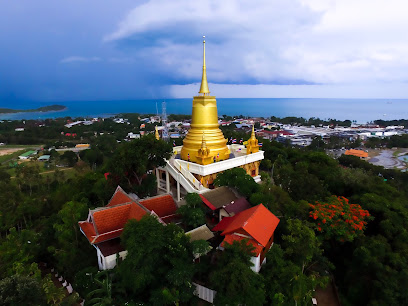
Unmissable attractions to see
Hin Ta Hin Yai
Discover the iconic Hin Ta Hin Yai on Ko Samui, Thailand, where nature's artistry meets cultural legend against stunning coastal views.
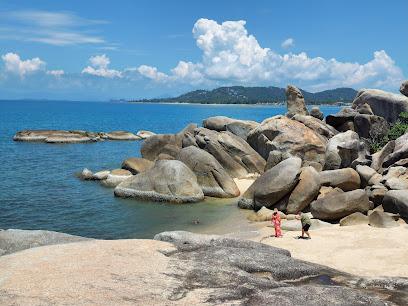
Wat Plai Laem
Explore the vibrant architecture and spiritual serenity of Wat Plai Laem, a must-see Buddhist temple on Ko Samui, Thailand.

Nathon Pier
Discover the vibrant atmosphere of Nathon Pier, your gateway to Ko Samui's stunning islands and local Thai culture.
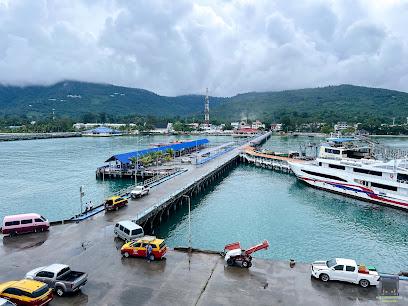
Tarnim Magic Garden
Experience the whimsical artistry and serene beauty of Tarnim Magic Garden in Ko Samui, a hidden paradise for nature lovers and art enthusiasts alike.
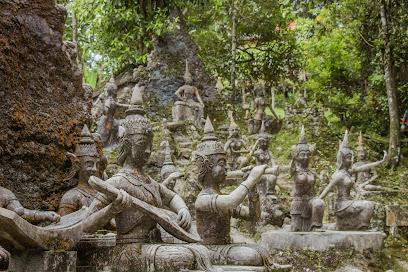
Mu Ko Ang Thong National Marine Park
Explore the breathtaking Mu Ko Ang Thong National Marine Park, where adventure meets tranquility amidst stunning islands and vibrant marine life.
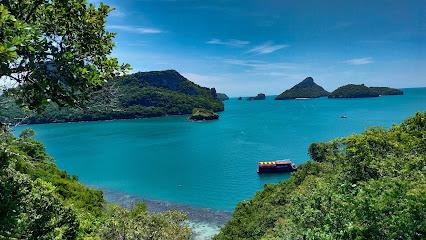
Lad Koh View Point
Experience the stunning vistas at Lad Koh View Point, a top scenic spot in Ko Samui, where nature meets tranquility and adventure awaits.
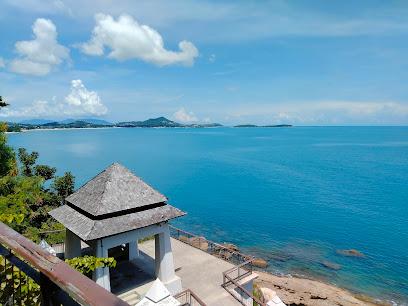
Fisherman's Village Night Market
Explore Fisherman's Village Night Market in Ko Samui for a vibrant evening of delicious street food, unique crafts, and local culture by the beach.
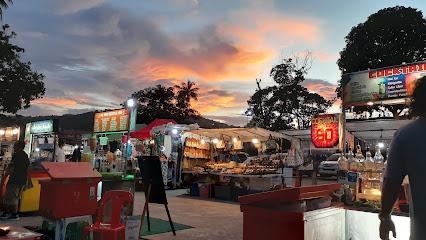
Lamai Beach
Discover the enchanting beauty of Lamai Beach in Surat Thani, Thailand – a perfect blend of relaxation, adventure, and vibrant culture.
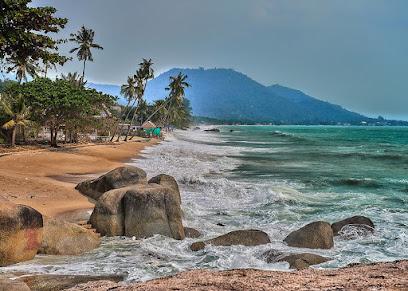
Bo Phut Beach
Discover the serene beauty and vibrant culture at Bo Phut Beach in Surat Thani, Thailand – a perfect blend of relaxation and adventure.
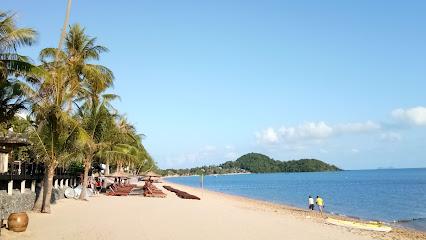
Secret Beach
Explore the serene beauty of Secret Beach in Ko Pha-ngan, a hidden gem perfect for relaxation, sunbathing, and breathtaking sunsets.
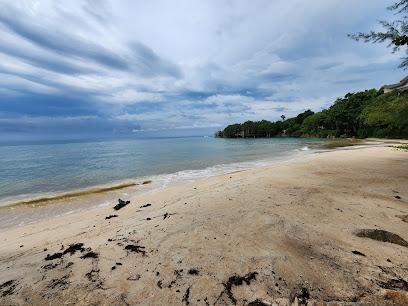
Na Mueang Waterfall 2
Explore the enchanting Na Mueang Waterfall 2 in Ko Samui, a perfect blend of tranquility and natural beauty amidst Thailand's lush landscapes.
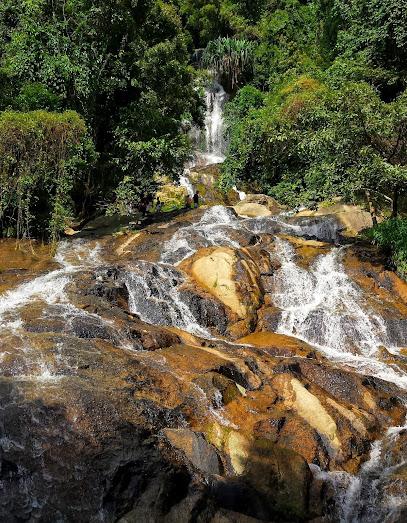
Wat Ratchathammaram Red Temple
Explore the vibrant beauty and serene atmosphere of Wat Ratchathammaram Red Temple, a cultural gem in Ko Samui District that enchants every visitor.
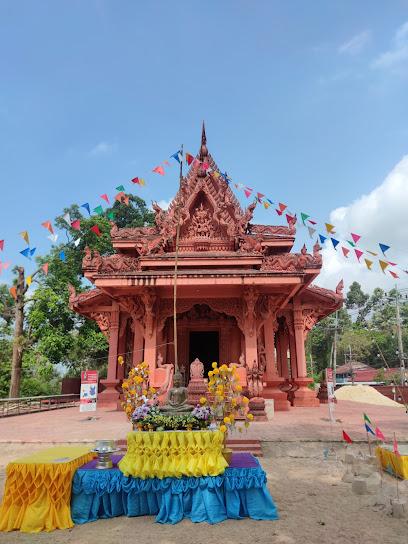
Wat Kunaram
Experience the tranquility of Wat Kunaram in Ko Samui, a unique Buddhist temple featuring a mummified monk and breathtaking architecture.

Paradise Park Farm
Experience the beauty of nature at Paradise Park Farm in Ko Samui, where stunning views and friendly animals create unforgettable memories.
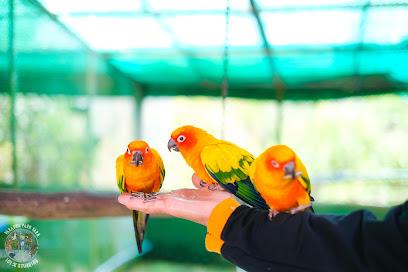
Chaweng Beach
Discover the beauty and vibrancy of Chaweng Beach in Surat Thani, Thailand, where sun, sand, and adventure await you.
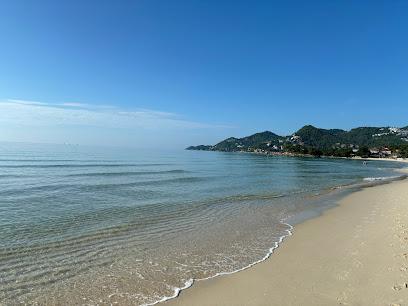
Essential places to dine
THE COCOON - SAMUI VIEWPOINT
Experience breathtaking views and exquisite cuisine at The Cocoon - Samui Viewpoint in Ko Samui.
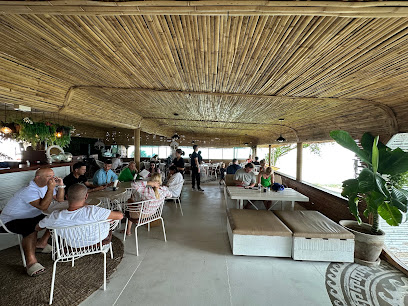
Kawin's Kitchen
Discover authentic Thai cuisine with a modern twist at Kawin's Kitchen in Ko Samui - perfect for vegans and food lovers alike!
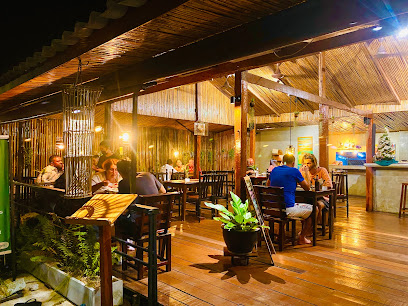
The Hungry Wolf
Experience diverse culinary delights at The Hungry Wolf in Koh Samui - burgers, pizzas & vegan options await!
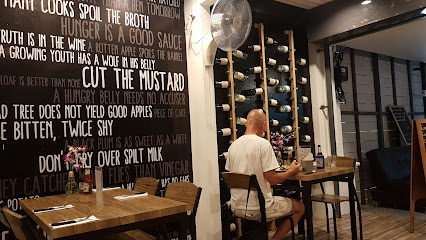
Cafe 69
Discover the unique flavors of Thailand at Cafe 69 in Koh Samui – where culinary artistry meets vibrant cocktails.
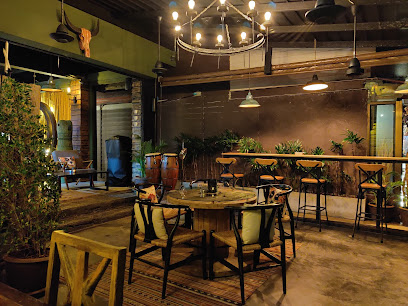
Malee Kitchen
Experience authentic Thai cuisine at Malee Kitchen on Chaweng Beach – a must-visit for culinary enthusiasts in Koh Samui.
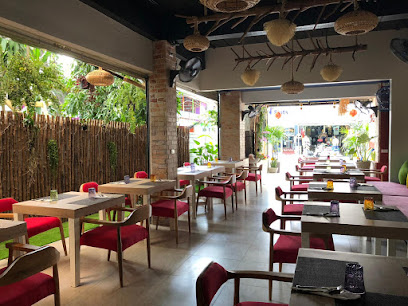
Sala Thai Art Gallery & Restaurant
Discover authentic Thai flavors and captivating local art at Sala Thai Art Gallery & Restaurant in Ko Samui.
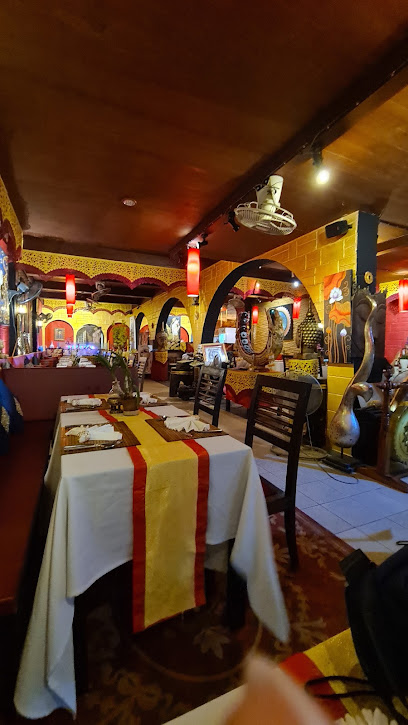
Day & Night of Koh Samui
Discover culinary excellence at Day & Night of Koh Samui - where local flavors meet modern dining in an unforgettable setting.
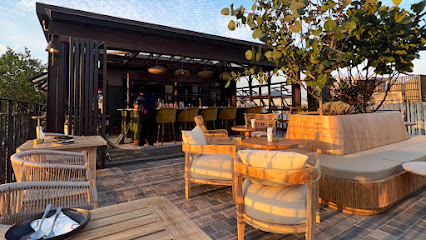
Aromi diversi
Discover Aromi Diversi: where authentic Italian flavors meet tropical paradise in Ko Samui.
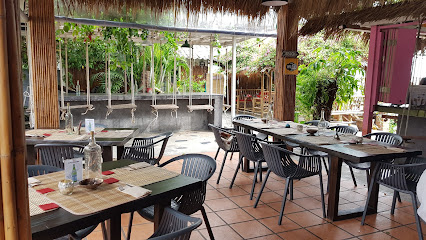
Karma Sutra
Discover a culinary haven at Karma Sutra in Ko Samui, blending Thai and European flavors amidst stunning coastal views.
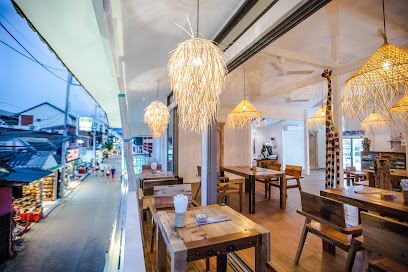
Pepenero Koh Samui
Savor authentic Italian cuisine at Pepenero Koh Samui - where every dish tells a story of flavor and tradition in paradise.
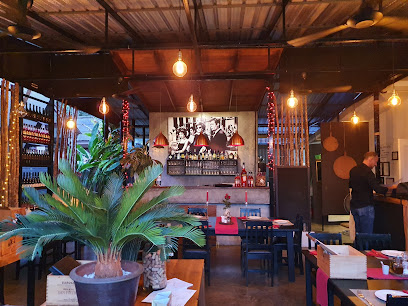
Passa
Discover the exquisite flavors at Passa in Ko Samui - where Asian fusion meets fine dining in a stunning beachfront setting.
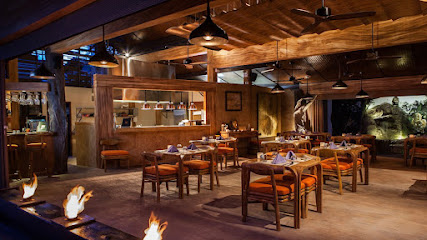
Harry's Restaurant
Experience authentic Thai flavors at Harry's Restaurant in Ko Samui - where every dish tells a story of tradition and taste.
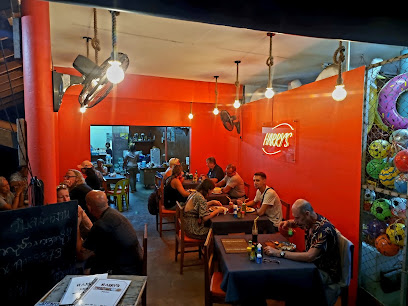
Armando's Beach Restaurant
Discover Armando's Beach Restaurant in Ko Samui - where exquisite Thai flavors meet stunning ocean views for an unforgettable dining experience.
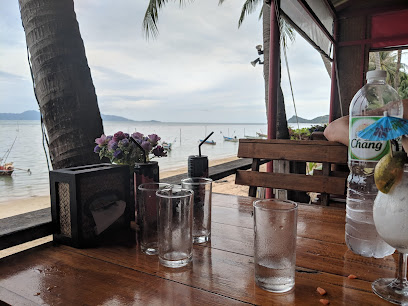
Spices Cafe
Discover culinary delights at Spices Cafe in Ko Samui - where fresh ingredients meet authentic flavors for an unforgettable dining experience.
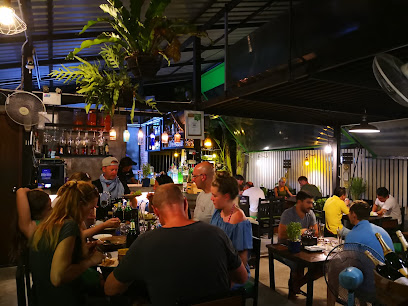
Tree Tops Signature Dining
Discover the enchanting culinary heights at Tree Tops Signature Dining in Ko Samui, where exquisite flavors meet breathtaking views.
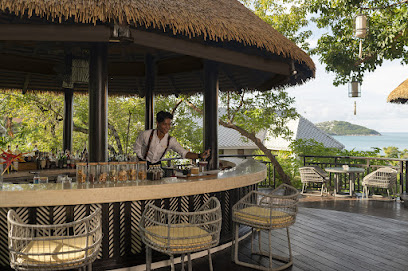
Markets, malls and hidden boutiques
Central Samui
Discover Central Samui: a shopping haven where retail, dining, and entertainment converge for an unforgettable experience.
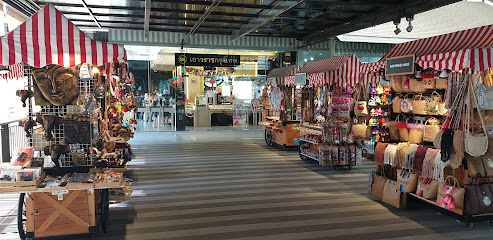
Big C Supercenter Samui
Explore Big C Supercenter Samui for a unique shopping experience, featuring a wide variety of products and delicious local cuisine in the heart of Ko Samui.
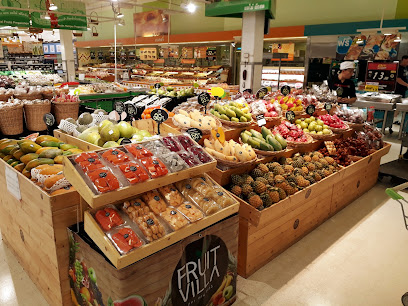
KoMui Gardens
Experience the essence of Ko Samui at KoMui Gardens, where unique gifts and a lively bar atmosphere await every traveler.
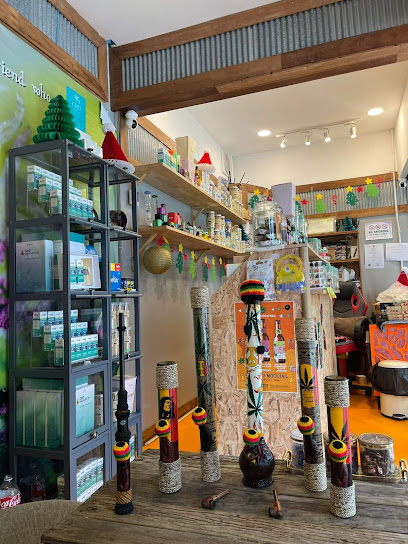
Majesty tailor
Experience bespoke tailoring at Majesty Tailor in Koh Samui, where quality craftsmanship meets personalized service for your perfect fit.
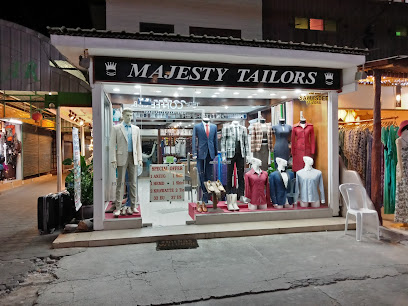
The Wharf
Explore The Wharf in Ko Samui for a delightful shopping and dining experience, complemented by breathtaking ocean views and vibrant local culture.
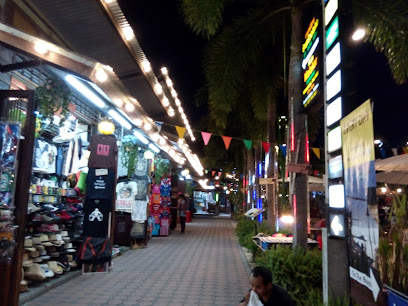
Oscars Fashion
Discover the essence of island style at Oscars Fashion in Ko Samui – your ultimate destination for trendy clothing and unique local designs.
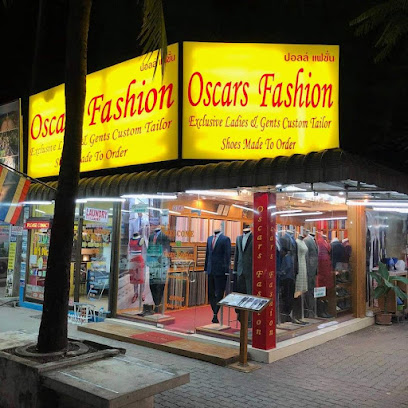
UNIQLO CentralFestival Samui Store
Explore stylish clothing and unbeatable comfort at UNIQLO CentralFestival Samui, a premier shopping destination in Koh Samui.
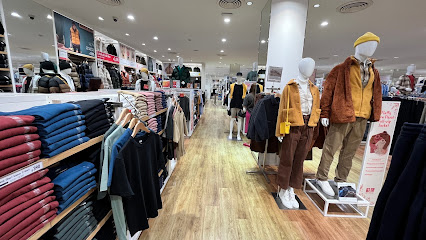
G.JOSEPH CUSTOM TAILOR
Discover bespoke tailoring excellence at G.Joseph Custom Tailor in Bophut, where personalized service meets exceptional craftsmanship.
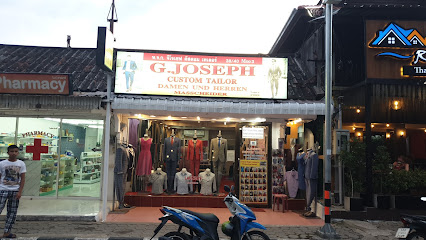
Art 'n' Design Samui
Discover unique women's fashion, local art, and charming finds at Art 'n' Design Samui in the heart of Ko Samui, Thailand.
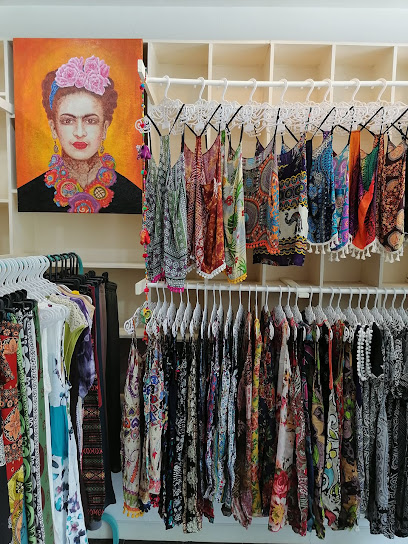
Chandra Boutique
Discover the essence of island fashion at Chandra Boutique, where unique beachwear meets chic style in the heart of Ko Samui.
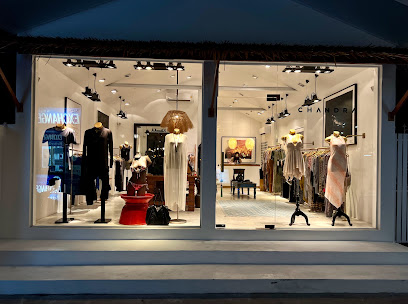
PSYLO
Explore PSYLO, the ultimate destination for unique fashion and accessories in vibrant Chaweng, Koh Samui.
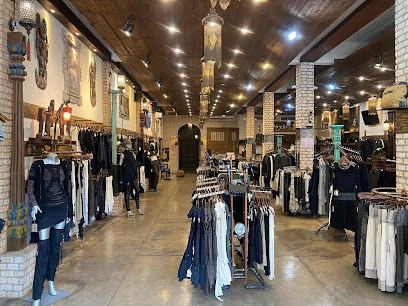
Boss International Suits
Discover tailored elegance at Boss International Suits, the premier destination for bespoke suits in Koh Samui's vibrant Chaweng Beach.
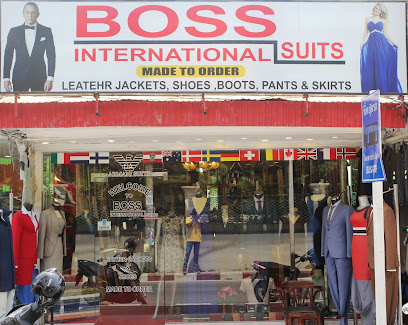
Fair Artisan Store
Explore Fair Artisan Store in Ko Samui for unique handicrafts and local artistry, a true reflection of Thailand’s vibrant culture.

Saona Collection / Bophut
Explore Saona Collection in Bophut, your go-to destination for trendy women's fashion and unique accessories on the beautiful island of Ko Samui.
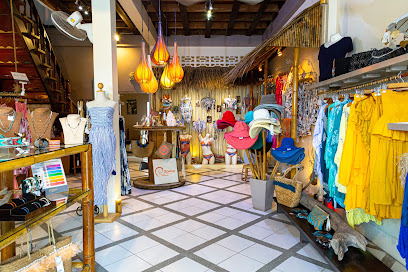
Koh Samui Handicraft
Explore Koh Samui Handicraft: A vibrant shopping mall showcasing exquisite coconut wood and shell crafts, perfect for unique souvenirs.
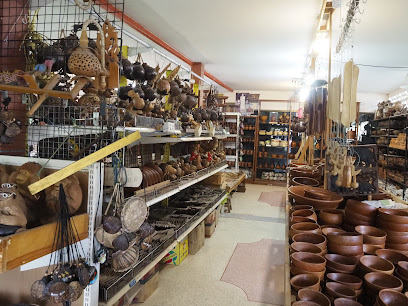
Essential bars & hidden hideouts
Rock Bar
Experience the breathtaking sunset views and vibrant atmosphere at Rock Bar, a must-visit destination on Ko Samui for cocktail lovers.
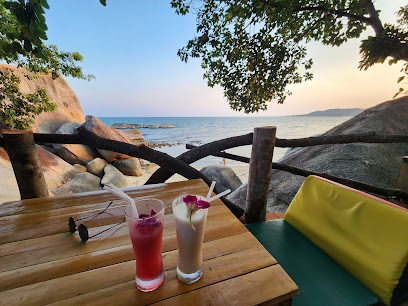
Chi Samui
Experience the vibrant atmosphere of Chi Samui, where exquisite dining meets tropical charm in the heart of Ko Samui.
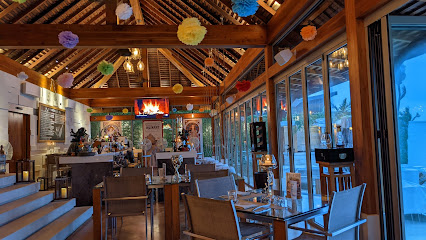
The Palms Bar & Grill Samui
Experience the vibrant nightlife of Koh Samui at The Palms Bar & Grill, where delicious cocktails and live music create unforgettable memories.
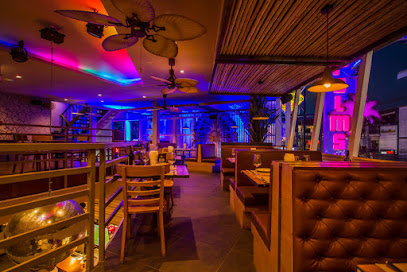
Henry Africa's Bar
Discover the vibrant nightlife and signature cocktails at Henry Africa's Bar in Chaweng, Ko Samui - a must-visit for every traveler.
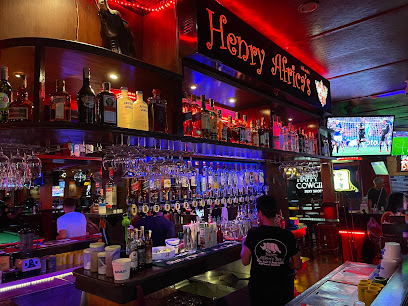
Cool Bar
Discover Cool Bar in Ko Samui – a vibrant retreat for travelers seeking refreshing drinks, delightful snacks, and a lively social scene amidst tropical beauty.
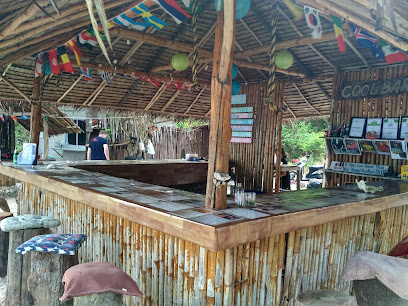
On Street Bar
Experience the vibrant nightlife at On Street Bar in Ko Samui, where delicious drinks and a lively atmosphere await every traveler.
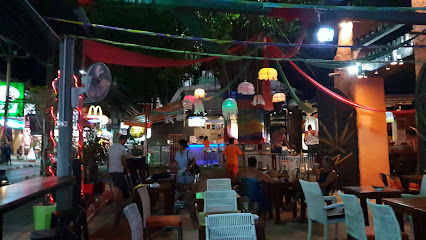
Samui Mojito Lab
Discover the lively atmosphere and innovative cocktails at Samui Mojito Lab, the ultimate destination for nightlife in Koh Samui.
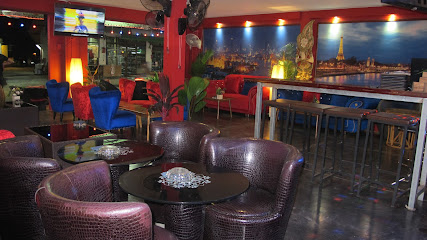
Cocktail King&Kiin Restaurant
Experience the vibrant flavors of Thailand at Cocktail King & Kiin Restaurant, where delicious cocktails meet exquisite cuisine on the shores of Koh Samui.
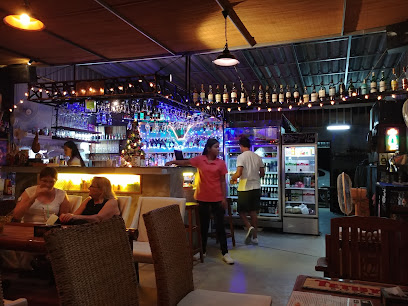
Woobar
Discover the vibrant atmosphere of Woobar in Koh Samui, where exquisite cocktails meet stunning beachfront views for an unforgettable experience.
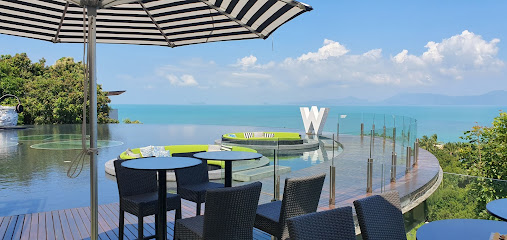
Bar Bohem
Experience the vibrant nightlife of Ko Samui at Bar Bohem, where exquisite cocktails and stunning views create unforgettable evenings.
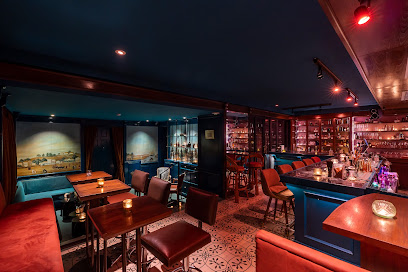
Legends Bar
Experience vibrant nightlife and tropical vibes at Legends Bar in Ko Samui, where affordable drinks and great company await.
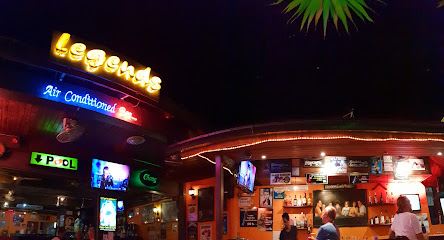
Crafty Cocktail Co.
Experience the vibrant mixology scene at Crafty Cocktail Co. in Koh Samui, where innovative cocktails meet an inviting atmosphere.
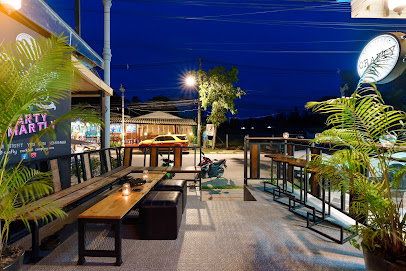
UNDER BAR
Experience Koh Samui's vibrant nightlife at Under Bar, where crafted cocktails and energetic beats create unforgettable nights.
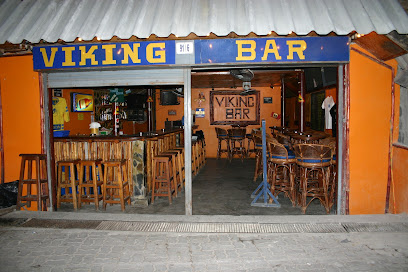
Sang's Bar
Discover Sang's Bar on Chaweng Noi Beach, where cocktails, sunsets, and a vibrant atmosphere come together for an unforgettable experience.
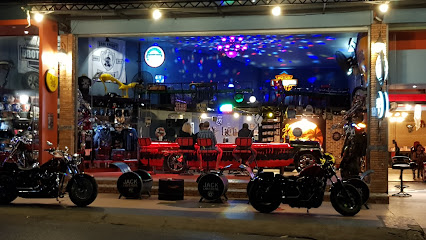
Hendrix Bar
Experience vibrant nightlife at Hendrix Bar in Bo Put, Ko Samui, where classic tunes and exquisite cocktails create unforgettable moments.
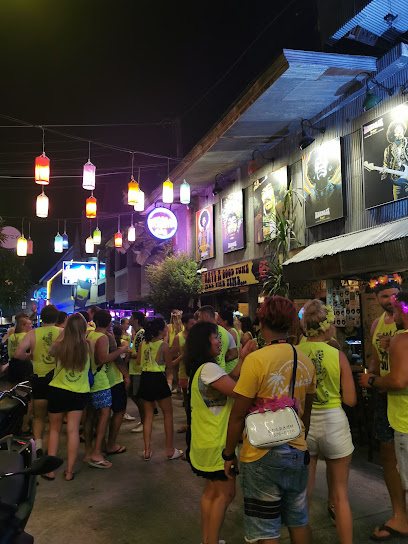
Local Phrases
-
- Helloสวัสดี
[sawasdee] - Goodbyeลาก่อน
[laa kon] - Yesใช่
[chai] - Noไม่
[mai] - Please/You're welcomeโปรด/ยินดีต้อนรับ
[proht/yin dee dton rap] - Thank youขอบคุณ
[kop kun] - Excuse me/Sorryขอโทษ
[kor toht] - How are you?สุขสันต์ไหม
[suk san mai] - Fine. And you?สบายดีครับ/ค่ะ คุณล่ะ
[sabai dee khrap/kha khun la] - Do you speak English?คุณพูดภาษาอังกฤษได้ไหม
[khun poot pha saa ang-grit dai mai] - I don't understandฉันไม่เข้าใจ
[chan mai khao jai]
- Helloสวัสดี
-
- I'd like to see the menu, pleaseขอดูเมนูหน่อย
[kor doo menu noi] - I don't eat meatฉันไม่กินเนื้อ
[chan mai gin neuua] - Cheers!ชน
[chon] - I would like to pay, pleaseขอจ่ายเงินหน่อย
[kor jai ngern noi]
- I'd like to see the menu, pleaseขอดูเมนูหน่อย
-
- Help!ช่วยด้วย
[chuay duay] - Go away!ไปทางอื่น
[bpai taang euun] - Call the Police!โทรตำรวจ
[tor tamruat] - Call a doctor!โทรหมอ
[tor mor] - I'm lostฉันหลงทาง
[chan long taang] - I'm illฉันไม่สบาย
[chan mai sabai]
- Help!ช่วยด้วย
-
- I'd like to buy...ฉันต้องการซื้อ...
[chan tong gaan seuu...] - I'm just lookingฉันแค่ดูอยู่
[chan khae duu yuu] - How much is it?ราคาเท่าไหร่
[raa kha tao rai] - That's too expensiveแพงเกินไป
[paeng geern bpai] - Can you lower the price?ลดราคาได้ไหม
[lot raa kha dai mai]
- I'd like to buy...ฉันต้องการซื้อ...
-
- What time is it?ตอนนี้กี่โมง
[dton nee kee mong] - It's one o'clockเป็นโมง
[pen mong] - Half past (10)สามครึ่ง
[saam khrung] - Morningเช้า
[chao] - Afternoonบ่าย
[bai] - Eveningเย็น
[yen] - Yesterdayเมื่อวาน
[meua waan] - Todayวันนี้
[wan nee] - Tomorrowพรุ่งนี้
[proong nee] - 1หนึ่ง
[neung] - 2สอง
[song] - 3สาม
[saam] - 4สี่
[see] - 5ห้า
[ha] - 6หก
[hok] - 7เจ็ด
[jet] - 8แปด
[bpaeht] - 9เก้า
[gao] - 10สิบ
[sip]
- What time is it?ตอนนี้กี่โมง
-
- Where's a/the...?...อยู่ที่ไหน
[...yuu tee nai] - What's the address?ที่อยู่อยู่ที่ไหน
[tee yuu yuu tee nai] - Can you show me (on the map)?ช่วยชี้ให้หน่อยได้ไหม
[chuay chee hai noi dai mai] - When's the next (bus)?รถเมล์ต่อไปเวลาเท่าไหร่
[roht mel tor bpai way laa tao rai] - A ticket (to ....)ตั๋วไป...
[dtua bpai...]
- Where's a/the...?...อยู่ที่ไหน
History of Koh Samui
-
Koh Samui, the third-largest island in Thailand, has a history that stretches back 1,500 years. The island was originally settled by Malay and Chinese traders. Evidence of early habitation includes artifacts and ancient inscriptions that suggest the island was an important waypoint for maritime trade routes.
-
The introduction of Buddhism to Koh Samui occurred around the 13th century, with the establishment of several temples. Wat Phra Yai, commonly known as the Big Buddha Temple, is one of the most significant, featuring a 12-meter high golden Buddha statue. These religious sites became focal points for the local community.
-
For much of its history, Koh Samui's economy was driven by agriculture, particularly coconut farming. The island was known for its coconut plantations, and coconuts were a major export to mainland Thailand. The phrase 'Samui coconut' became synonymous with high quality.
-
Koh Samui remained relatively isolated until the late 20th century. The construction of an airport in 1989 marked a turning point, facilitating an influx of tourists. This led to rapid development of infrastructure, including resorts, restaurants, and other amenities, transforming the island into a major tourist destination.
-
Koh Samui hosts several cultural festivals that highlight its rich heritage. The Samui Regatta, an annual sailing event, attracts international participants. The island also celebrates Songkran, the Thai New Year, with traditional water fights, and Loy Krathong, which involves floating lanterns on water.
-
In response to the pressures of tourism, efforts have been made to preserve Koh Samui's natural beauty. Marine reserves have been established to protect coral reefs and marine life. Local organizations and businesses have also promoted eco-friendly practices to ensure sustainable tourism.
Koh Samui Essentials
-
Koh Samui is accessible by air and sea. The Samui International Airport (USM) has direct flights from Bangkok, Phuket, and several international destinations. Alternatively, you can take a flight to Surat Thani or Nakhon Si Thammarat on the mainland and then transfer by bus and ferry to Koh Samui. Ferries operate from Donsak Pier, and the journey takes about 1.5 to 2 hours.
-
Getting around Koh Samui is easy with several options available. Songthaews (shared taxis) are a popular and affordable mode of transport. Private taxis and motorbike taxis are also widely available, but make sure to negotiate the fare beforehand. Renting a motorbike or car is another convenient option for exploring the island at your own pace. Be cautious while driving, as traffic can be hectic.
-
The official currency in Thailand is the Thai Baht (THB). Credit cards are accepted in most hotels, restaurants, and larger shops, but it is advisable to carry cash for smaller establishments and markets. ATMs are plentiful across the island, and currency exchange services are also available.
-
Koh Samui is generally a safe destination for tourists. However, petty crimes such as pickpocketing and bag snatching can occur, especially in crowded areas and nightlife spots in Chaweng and Lamai. Always keep an eye on your belongings and avoid walking alone at night in secluded areas. Ensure your accommodation has adequate security measures.
-
In case of an emergency, dial 191 for police assistance or 1669 for medical emergencies. Koh Samui has several hospitals, including Samui International Hospital and Bangkok Hospital Samui, offering comprehensive medical services. It's advisable to have travel insurance that covers medical emergencies. For minor health issues, pharmacies are available in most tourist areas.
-
Fashion: Do dress modestly, especially when visiting temples. Avoid swimwear outside of beach areas. Religion: Do show respect at religious sites by removing your shoes and covering your shoulders and knees. Public Transport: Do be polite and avoid eating or drinking on public transport. Greetings: Do greet locals with a 'wai,' a slight bow with hands pressed together. Eating & Drinking: Do try local dishes and street food. Don't point your feet at people or religious objects, as it is considered disrespectful.
-
To experience Koh Samui like a local, visit the Fisherman's Village in Bophut for its charming streets and local markets. Engage with locals at the night markets and try local street food. For a serene experience, explore the lesser-known beaches like Lipa Noi or Taling Ngam. Attend a Muay Thai match for a taste of local sports culture and visit local temples like Wat Plai Laem for a glimpse into local religious practices.
Trending Landmark in Koh Samui
-
Big Buddha Temple (Wat Phra Yai)
-
Grandfather and Grandmother Rocks (Hin Ta Hin Yai)
-
Wat Plai Laem
-
Samui Airport
-
Tarnim Magic Garden
-
Ta Nim Magic Garden
-
Lad Koh View Point
-
Ko Samui
-
Fisherman's Village Night Market
-
The Green Mango
-
Samui Elephant Sanctuary Bophut
-
วัดราชธรรมาราม (วัดศิลางู)
-
Lamai Viewpoint & Valentine Stone
-
หน้าเมือง ซาฟารี ปาร์ค
-
Wat Khao Hua Chuk Pagoda
Nearby Cities to Koh Samui
-
Things To Do in Surat Thani
-
Things To Do in Nakhon Si Thammarat
-
Things To Do in Ranong
-
Things To Do in Chumphon
-
Things To Do in Krabi
-
Things To Do in Trang
-
Things To Do in Phuket
-
Things To Do in Satun
-
Things To Do in Hua Hin
-
Things To Do in Langkawi
-
Things To Do in Koh Rong
-
Things To Do in Rayong
-
Things To Do in Pattaya
-
Things To Do in Koh Kong
-
Things To Do in Trat

















